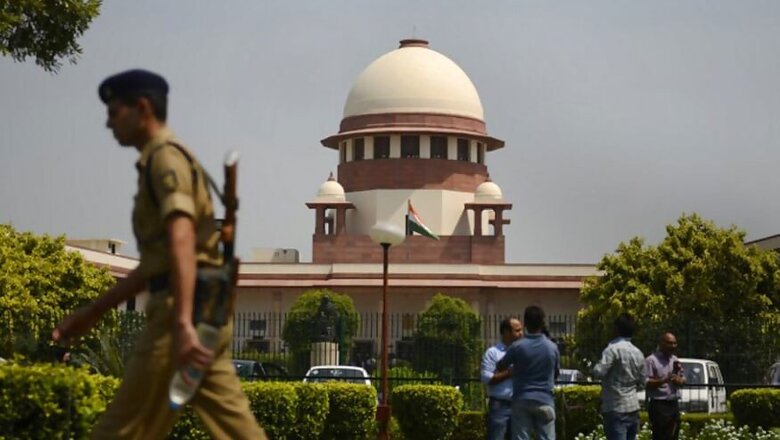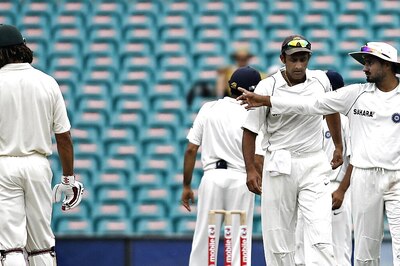
views
New Delhi: The central government has submitted in the Supreme Court that a woman's right to abort is not an absolute right.
Seeking dismissal of a PIL that sought complete autonomy for a woman to determine whether or not to continue with her pregnancy, the ministry of health and family welfare referred to the statement of object and reasons of the Medical Termination of Pregnancy (MTP) Act, 1971.
"A pregnant woman's right to abort her pregnancy is not an absolute right, and the right to abortion must be balanced against the compelling state interest of protecting the mother's health and the life of the foetus/unborn child," the ministry said in an affidavit filed in the Supreme Court.
The government maintained that the 1971 law was enacted for legalising abortion and to prevent unsafe abortion and thus the contention of the petitioner that the provisions of the MTP Act are unconstitutional and violative of Article 14 (right to equality) and 21 (right to life) are "wrong and incorrect".
The affidavit added that reducing mortality and morbidity due to pregnancy-related causes is an important priority for the Government of India since unsafe abortions contribute to 8 per cent of maternal mortality in India and continue to be the third largest cause of maternal mortality.
"There is an urgent need to prevent death and disabilities suffered by women. In order to ensure safety, the procedure must be conducted under strict conditions without compromising service and quality of safe abortions. Hence, the prayer if the petitioner seeking declaration with regard to Section 3 and 5 deserve to be rejected by this court," read the affidavit.
A bench headed by Chief Justice of India SA Bobde will examine the Centre's response on Monday in a hearing.
The government is responding to a petition filed jointly by three women, Swati Agarwal, Garima Sekseria and Prachi Vats, contending that certain provisions in Sections 3 and 5 of the law violated fundamental rights and should be quashed.
Both Sections 3 and 5 lay down that a pregnancy can be terminated only when continuing the pregnancy would involve a risk to the woman’s life or cause grave injury to her physical or mental health, or that there is substantial risk to the child if born. Role of medical practitioners has also been envisaged in the MTP Act.
The PIL asked for quashing these provisions as they imposed severe restriction on a woman's right of a free reproductive choice as well as her privacy.
The top court had in July agreed to entertain the petition as it issued notices, and sought a reply from the Centre.
By filing its affidavit now, the central government has opposed the petition. It pointed out that there has been an alarming fall in the sex ratio in birth.
"Although the reasons for the skewed sex ratio stem from multiple deep-rooted social and cultural issues, the most common reason given to explain (this) is the supposed easy availability of ultrasound technologies and abortions in the country," stated the affidavit.
The ministry added that the amendments are being mulled in the MTP Act but the consequences are to be examined carefully and it is necessary to institute safeguards against any misuse of the law for performing late term sex-selective abortions by unscrupulous service providers.
It said that these amendments aim at strengthening and expanding the access to abortion services while taking into account the advances in medical technology.
An Amendment Bill was drafted after May this year and the approval of the Ethics Committee has been received. The final draft of the 2019 Amendment Bill is in the process of finalisation at the earliest. At present, the draft has been sent to the ministry of law and justice for vetting.
The very issues raised by the petitioner are being considered and addressed through appropriate amendments to the MTP Act. "The issues raised are therefore premature in as much as the ministry of health and family welfare is currently engaged in bringing out appropriate amendments to the MTP Act," said the Ministry.
Additionally, in term of a Supreme Court judgment in 2017, the ministry has been instructed to form Permanent Medical Boards to states and union territories for considering cases for termination of pregnancy beyond the statutory period of 20 weeks, required in cases of substantial foetal abnormalities, and in case of pregnancy due to sexual violence on minors and women, it said.
The ministry also said the consent of guardian for termination of pregnancy of minors or mentally ill persons is necessary.
"The argument that doing away with the consent of guardian would be in the best interest of the minor and mentally ill person is contrary to the law of the land as minors and persons with mental illness or of unsound mind cannot give valid consent. Hence, the petition deserves to be rejected," it submitted in the court.




















Comments
0 comment